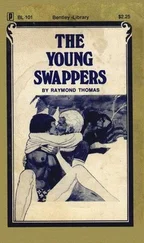She was next.
She ducked behind the wall just as the BMW burst out of the alley. Its bumper clipped the corner of the wall inches from Mia in a thunderous explosion of steel and stone, then the car swerved right and charged off towards the mosque. As it rushed past, Mia caught a glimpse of the men in the car, the android and the driver in front, her mother crammed in between the two thugs in the backseat.
There was no sign of Evelyn’s companion.
Mia stumbled out from behind the wall. The street was deathly quiet again, as if nothing had happened. She didn’t know where to turn. She spotted the second soldier, lying down the alley from her. Beyond him, she saw her mom’s handbag, its contents strewn on the ground around it, and, a bit further away, a lone shoe of hers. Mia made her way over to the soldier, suddenly aware that her whole body was violently shaking. He lay there, on the ground, contorted in unnatural bends, a rivulet of blood snaking out of the corner of his mouth. He looked at her with pained eyes and blinked.
Her legs collapsed from under her, and she knelt down beside him and cried.
The next hour or two went by in a blur.
Sitting in an austere interview room in the Hobeish police station on Rue Bliss, Mia felt sick to her stomach. It didn’t help that the room, with its bare concrete-block walls, was cold and damp. She was shivering intensely, though that was probably more from the shock and the fear.
She tried to remain focused on the only thing that really mattered right now: getting her mom back. But she wasn’t sure the two detectives sitting across the table from her or the agitated cops darting confusingly in and out of the room were getting the message.
She’d left the bloodied soldier and blundered zombielike down to the main road at the end of the alley and just stood there, tears streaming down her face, facing the oncoming traffic with her arms up. Something about the haunted look on her face must have connected with the people driving by, as one car after another soon stopped to help. Before long, the cavalry appeared in the form of several Durangos filled with armed Fuhud policemen, a kind of paramilitary überforce. The quiet backstreet quickly morphed into a noisy, chaotic zoo. The soldier who’d been shot was already dead. The one who’d been rammed by the car was still hanging on, and an ambulance soon arrived and took him away. Evelyn’s handbag and her shoe were retrieved. Mia was questioned and shuffled from one cop to another — she tried to explain about her mom forgetting her phone and handed it over to them along with her own, that last request slightly unsettling her — before she was eventually packed into one of their jeeps and whisked off to the station under armed guard.
She shifted in the cold, metallic chair and took a small sip from a bottle of water someone had brought in for her. “Please,” she murmured. Her throat felt as if it had been rubbed down with sandpaper. Her desperate screams still rang in her ears. She swallowed and tried again. “Listen to me. You have to find her. They took her. You have to do something before it’s too late.”
One of the detectives facing her nodded and answered her in broken English, but it wasn’t what she wanted to hear, just more of the same evasive and condescending platitudes. More worrisome, his partner, a wiry, ferretlike man who had quietly been rifling through her mom’s handbag and spreading its contents on the table, now seemed to be keenly interested in some pictures that he’d found in a brown envelope in the bag. As he studied them, he glanced up at Mia with a look she didn’t really like. He nudged his taller colleague and showed him the photographs. Mia couldn’t understand what the men were saying — she couldn’t even see what was in the photos — but the suspicious glances were now coming her way from both men.
Her shivering was cutting deeper than before.
The two detectives discussed something among themselves and seemed to be in agreement on their next step. The ferret collected Evelyn’s things and stowed them back into her handbag, while his platitude-spouting friend gestured to Mia to stay put, explaining to her as best he could that they’d be back shortly. Her reactions were still running on a slight time delay, and before she could really object or question what they were concerned about, they were already heading out of the room. After they shut the door, she heard a key turning in the lock before it clicked ominously.
Great.
She slumped in her chair and shut her eyes, hoping she could blink the nightmare away and start her day over.
* * *
An hour later, the two detectives were facing her across the table again, only they were now joined by a pug of a man in a gray suit, no tie, and an annoyed expression wrinkled across his pink-pale face that indicated he’d been dragged from the solitary comfort of his home. Her mind was a bit clearer now — she’d been offered a cup of Turkish coffee, a thick, syrupy local specialty that had taken some getting used to, but that she’d grown to like over the last few weeks — and she’d perked up when her new visitor had introduced himself as John Baumhoff and informed her that he was with the American embassy.
The conversation that followed was far less promising.
Baumhoff tapped his fingers on the Polaroids, which he’d laid out across the table for her to see. “So you’re saying you know nothing about these?” he asked her again, in a voice that was a touch too high-pitched for his gender.
Mia sighed and made a concerted effort to calm herself. “I’ve told you what happened. I don’t know anything about these things, these relics, whatever they are. We were having a drink. She forgot her phone. I thought she was being followed. I tried to warn her. These men stuffed her into their car and took her away—”
“Killing a soldier and seriously wounding another in the process,” Baumhoff interjected, with a knowing glance at the detectives standing behind him, who nodded in solemn agreement.
“Yes, exactly,” she flared up, “which is why you need to find her, goddammit. She’s probably already locked up in some hellhole while you’re all sitting here playing canasta with these Polaroids.”
He studied her through tired and jaded eyes, then reached out and collected the photos, picking them up one by one with his lethargic, puffy fingers. “Miss, um”—he seemed to have already forgotten the name he’d written down on the notebook in front of him—“Bishop,” he continued with his nasal drawl, “if your mother has indeed been kidnapped, there’s little we could have done anyway.”
“You could have put up roadblocks,” Mia protested, “you could have alerted the army, God knows they’re everywhere. You could have done something.”
Baumhoff glanced at her wryly. “We’re not back home, Miss Bishop. It doesn’t work like that out here. If they want someone, you can be pretty sure they’ll get him. Or her, in this case. They know all the side roads. They know where they’ll be safe. They’ve got it all worked out ahead of time. The thing is”—he shrugged—“this isn’t Iraq. There hasn’t been a foreigner kidnapped here for, oh, at least fifteen years, if not longer. It just isn’t done anymore. Apart from the occasional political assassination, this is a surprisingly safe city, particularly if you’re a foreigner. Which is why,” he added, pausing to reconsider the photos in his hands, “I’ve got to agree with these folks in that this is probably something else. Some kind of trouble your mother got herself into.” His eyebrows arched up and he sucked in his lips and opened his palms quizzically, as if waiting for her to fill in the blanks or come clean somehow.
Читать дальше












